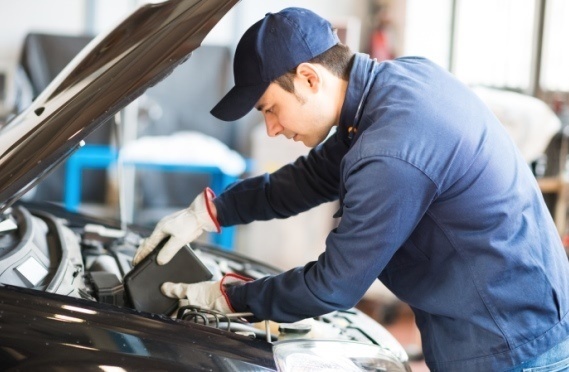As our population has continued to grow and people are increasingly relocating to suburbia, average commute times have sky-rocketed. A recent national study revealed that commuters in large metropolitan areas like New York City, Los Angeles and Chicago spend nearly an entire work week each year sitting in traffic to and from their jobs. In 2019, the average American spent 27.6 minutes a day—each way—driving to and from work. It’s safe to say the days of the 10-minute work commute are virtually gone.
So how many miles can a car last? Depends on how well you maintain it and how you drive it. If you’re one of these unlucky commuters for whom telecommuting, carpooling and/or public transportation aren’t realistic options, here are a few tips that may extend the life of your car and help you spend less on gas by making your vehicle more fuel-efficient.
1. Drive Gently
Avoid sudden starts and stops and observe the speed limit. Erratic acceleration and quick braking uses more fuel than driving in a smoother fashion. Plus, the wind resistance caused by driving fast costs you money. For every 5-mph you drive over the 60 mph mark, you add a dime to the price of every gallon of gas you buy.
2. Get Regular Tune-Ups
Keep the car as well-tuned as you possibly can. A poorly tuned engine can increase fuel consumption by up to 50 percent! Getting regular tune-ups, maintenance, and having clean air filters will help you burn less gas, pollute less, and prevent car trouble down the line. Using the right grade of oil for your car can also help ensure it runs smoothly in all types of weather.
3. Keep Your Tires Properly Inflated
A phenomenal 36% of cars are driven with tires below the recommended psi (pounds per square inch). Check your tire pressure regularly with a tire gauge to make sure they’re in line with what your manufacturer recommends. If you drive on wheels that are under-inflated your car’s fuel efficiency will be reduced by up to 2 percent for each pound that the tires are under-inflated.
4. Cut Back On The A/C Use
Stop using the A/C so much! Your vehicle’s air conditioner uses power generated by the engine, so only use it when necessary for short periods. Parking in the shade and using a reflective windshield shade will help keep your car cool on hot days. If your car is too hot to drive, simply roll down the windows and let it air-out before hitting the road. On the other hand, driving with your windows down reduces the aerodynamics of your car and increases fuel consumption, so on summer road trips try to strike a happy medium.
5. Get The Junk Out Of Your Trunk
Avoid carrying extra weight in your car. Extra weight saps your fuel economy, so unless you’re planning on playing that day, leave those golf clubs at home.
Got a new car with less than 15,000 miles on it? Be sure to add Mechanical Breakdown Insurance (MBI) to your auto insurance policy to help cover mechanical problems when your new car warranty runs out.
Continue reading: How to Survive a Really Long Commute
